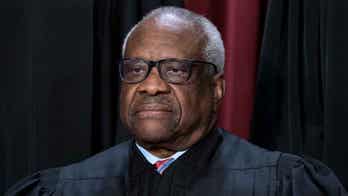The highly emotional and costly political battle over Wisconsin's Supreme Court seat was supposed to be over on Wednesday. Election day was Tuesday and a record number of voters came to the polls, but once all ballots were counted, the race was considered too close to call. It was a very different outcome than had been originally predicted, before the election became part of the bigger budget battle dividing Wisconsin.
It was two months earlier when state Senate Democrats left Wisconsin to avoid voting on Gov. Scott Walker's controversial budget repair bill, which would've ended collective bargaining for state union workers. The vote couldn't pass without a quorum, so remaining Republican state senators broke the bill down to remove the fiscal parts of it, and were then able to pass what was left of the bill on their own. Democrats sued, saying their conservative partners violated the state's open meetings law.
On Tuesday, for the first time since the walkout, Senate Democrats rejoined Senate Republicans in the chamber and passed the fiscal part of the bill. Both sides agreed a plan was needed to make up a $137 million shortfall in the state budget. On Wednesday, a triumphant looking Gov. Walker signed the bill into law.
"What we're really talking about is a balanced budget act...We're finally seeing the complete package come through," he said.
The bitter partisan battle over the bill, which drew thousands of protestors to the state capitol, spilled its way onto the hotly contested fight for a seat on the state's highest court. Many believe the court battle over collective bargaining will make its way up to the Wisconsin Supreme Court, and both sides hope for a court that's sensitive to their side. For many, the election was a referendum on Gov. Walker's budget bill and epic fight with the unions. Walker's opponents said they wanted to send a message.
In Wisconsin, supreme court justices get elected and serve for ten years. One justice, David Prosser, who was once a Republican state representative, is coming to the end of his term.
Right now the court is slanted conservative, 4-3. If liberals succeed in getting their candidate, Democrat JoAnne Kloppenburg, elected to replace Justice Prosser, the ideological balance will shift to the left.
Kloppenburg is supported by labor unions and liberals, who propelled her from an obscure second place. Justice Prosser called the campaign the most difficult assault on a person's character in the history of the judiciary.
Both sides have had millions of dollars spent by supporters on a barrage of attack ads against their opponents. At the end of a nail biting tight election on Tuesday, with Kloppenburg ahead by just 204 votes, the race was considered too close to call. About 1.5 million people cast ballots. A recount is considered imminent.
"We have to count this as a tremendous victory for the progressive movement because 6 weeks ago we were all debating whether Prosser would win by 30 or 40 points and that has all changed," said Democratic State Representative Kelda Roys.
"I think the bigger frustration is the amount of money coming from out of state," Walker said. "I think it's pretty clear that you have two different world's in this state, you've got a world driven by Madison and and a world driven by everybody else out across the majority of the state of Wisconsin."
Wisconsin's Government Accountability Board Director Kevin Kennedy expects to see more fireworks once the ballot recounts begin. Battles over the ballots could also end up in court. "The scrutiny that will come with this one will be unprecedented," Kennedy said.




